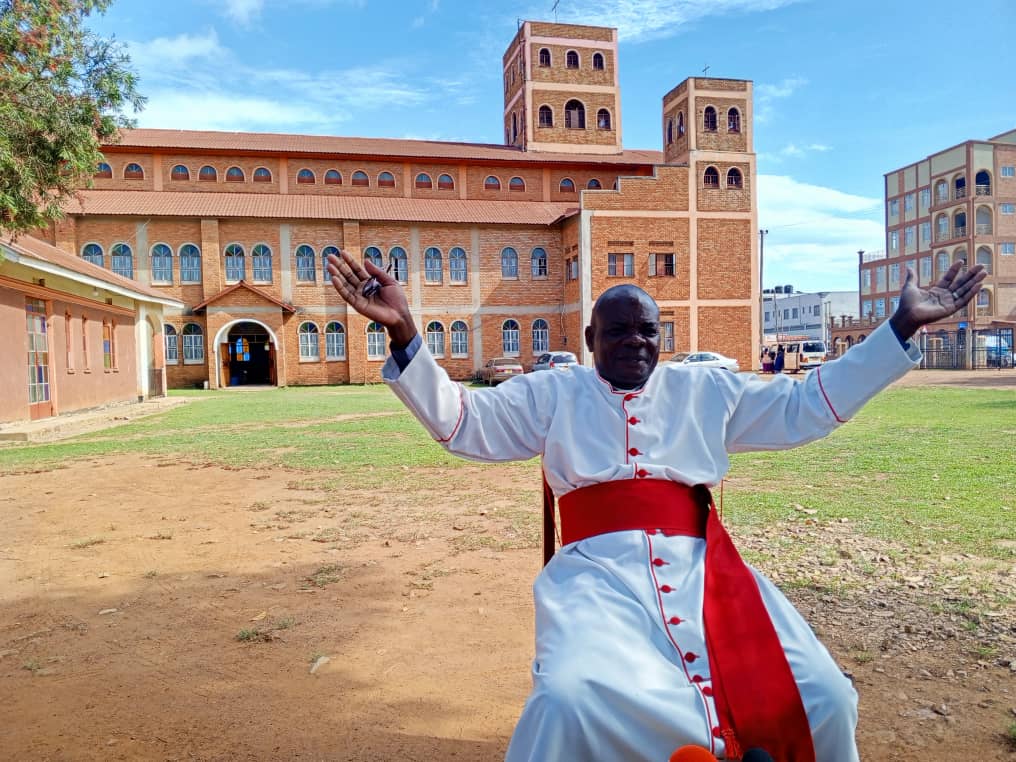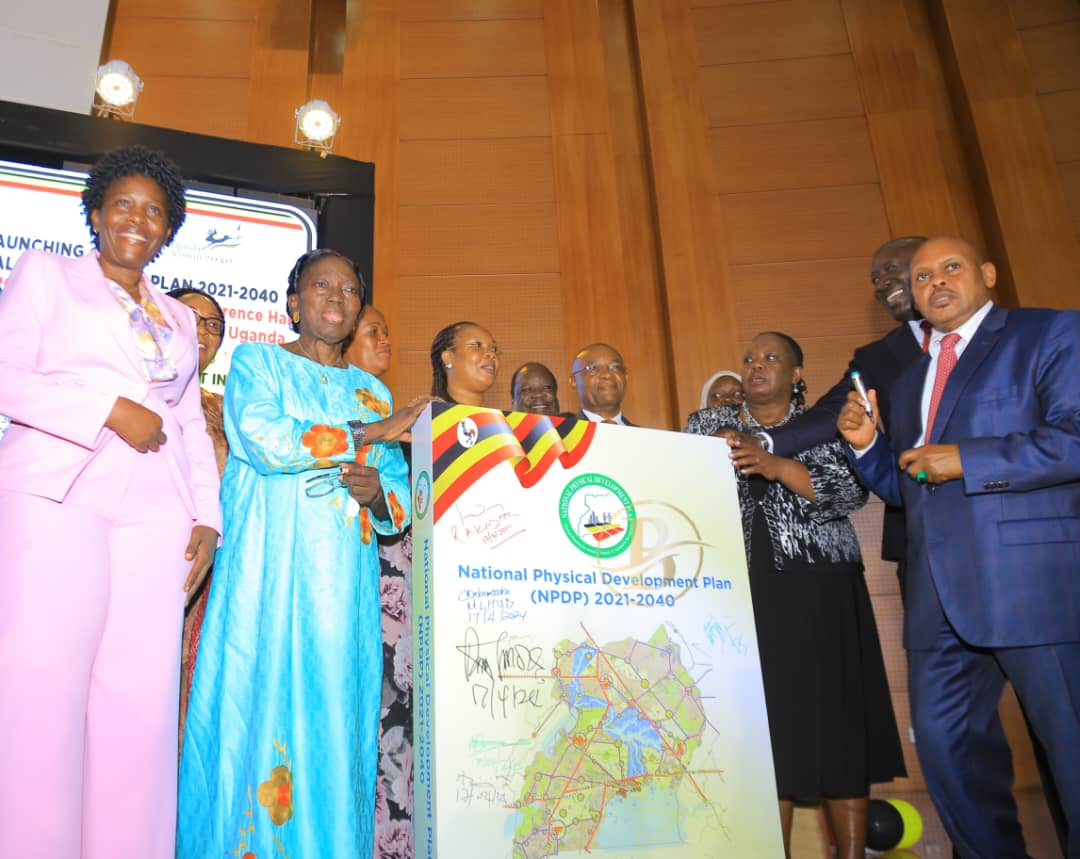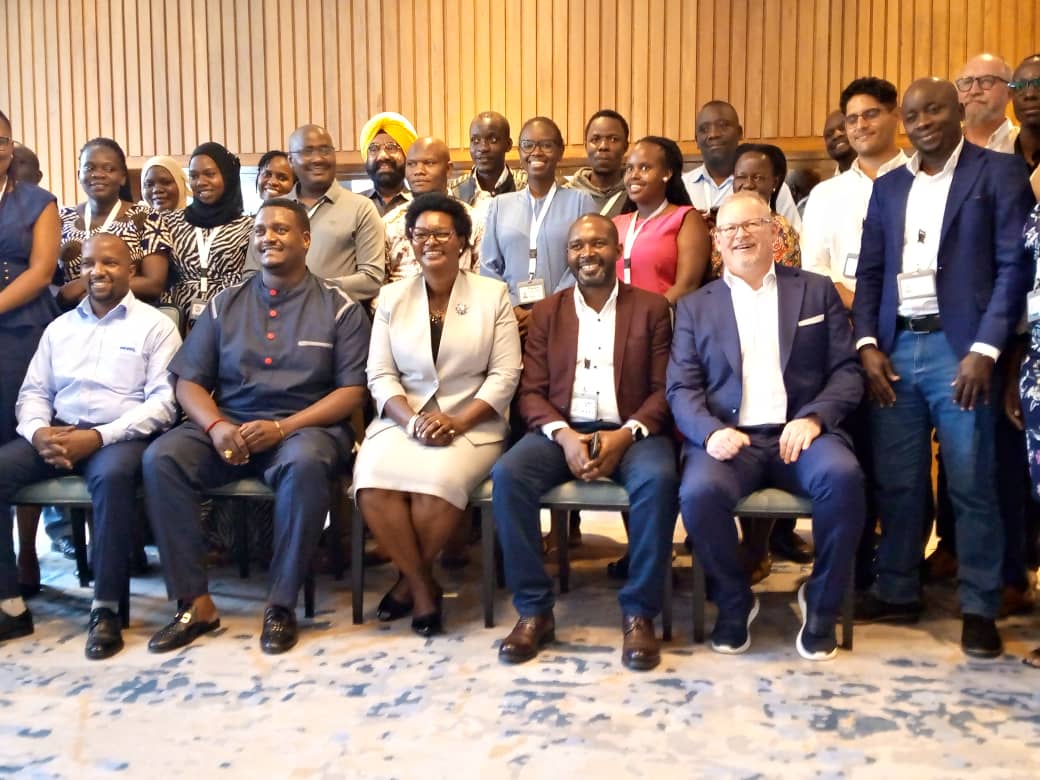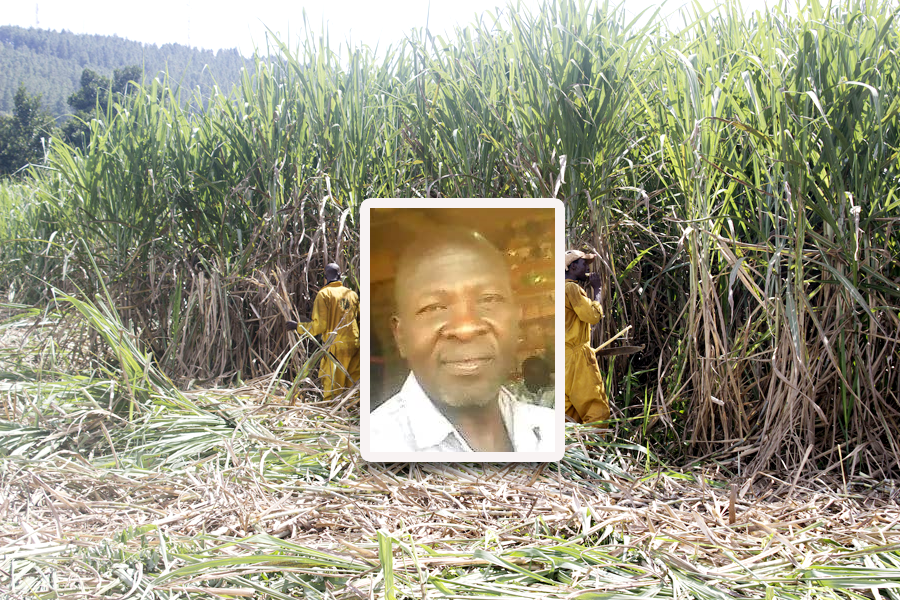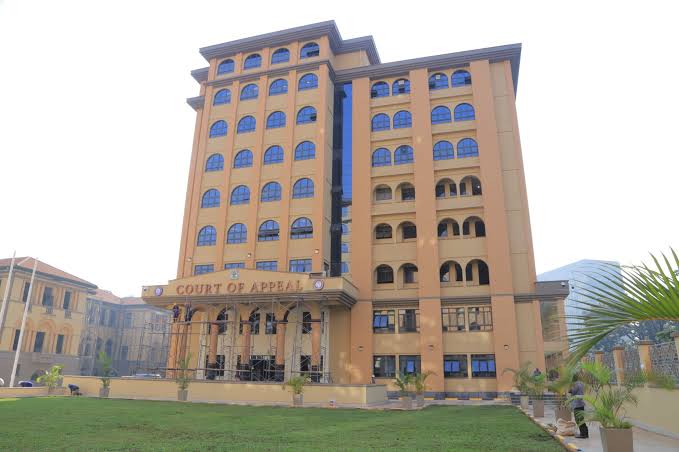Is Uganda still Africa's bread-basket?
Uganda has always been known as the bread basket of Africa and for the most part that's still true. But both the lack of rainfall in the northeast and the large number of refugees have posed a challenge to the country.
Keep Reading
- > Rev Can Ateirweho lists priorities as he starts work as Bunyoro Kitara Bishop
- > Liberty pays shs100m in life insurance claim to Kalangala family
- > Uganda Charts Course for Sustainable Growth with National Development Plan
- > Speaker Among calls for guidelines to streamline transportation of school children
Every day 300 to 500 new arrivals cross the border, mainly from South Sudan, where ongoing fighting has driven the people away.
Uganda currently hosts over 1.3 million refugees. Unlike most countries, Uganda hasn't built camps. Instead it has given each family a piece of land to build a home and farm on.
The idea is to help refugees to become self-reliant.
"I think the government is making a big effort and they have a national plan in which they also put the issue of food security high on their agenda," explained Andrea Padberg from the German NGO Welthungerhilfe.
"Due to a lot of things, like, the large influx of refugees, their resources are very strained."
The sheer number of new arrivals is overwhelming.
In June this year, Uganda held a solidarity summit, where the EU and other members pledged their support.
The UN's World Food Program (WFP) still has a funding gap of 62 million euros ($75 million). There's enough money to supply food until the end of November.
After that, says Uganda's WFP country director, El-Khidir Daloum, it's back to begging for funds.
"We would like to have flexibility. We would like to have funding ahead of time to enable us to make financial plans and have the rations ready for distribution," Daloum explained.
A growing market
If we look past the refugee situation, Uganda is usually able to feed itself. Especially in the southwest of the country, the staples of maize, cassava and plantain grow well.
And cash crops like coffee, of which Uganda is the second biggest exporter in Africa, also strengthen Uganda's export market.
More recently Uganda's dairy sector has seen a fair amount of growth. In this sector, Uganda competes with and exports to Kenya, which has a strong dairy industry of its own.
"In the southwest, which is the main driver for growth, dairy farming requires extensive grazing," explains Rinus van Klinken, a project manager with the Dutch NGO SNV.
"There are farms of 80 acres, 200 acres, with large landholdings, there is good rainfall, there are good breeds and therefore, with fairly limited input, you get a fairly high output."
In neighboring Kenya, he says, you have the opposite: the milk is produced by small holders who sell to the dairy companies.
They have small pieces of land and zero grazing. They have to grow the feed and they need a shed and much more intensive care for the livestock.
So the comparative advantage for Uganda is the low production cost and therefore it can compete."
Additionally, he says, Uganda's climate and soils are favorable for farming and that while the government has had a few short-falls, for instance, in farmer education or promoting the growth of cooperatives, it has done a relatively good job in regulating and managing the agricultural sector.
Regional differences
But according to van Klinken, the dairy sector also shows the large discrepancies in the country.
"Karamoja (in the northeast) is a unique case because of the pastoralist dynamic. There is not much trading. The pastoralist society mainly produces milk for household consumption," he says.
In general the Karamoja region has largely had to depend on food aid, cash benefits or other means support from the Ugandan government and international organizations.
In 2016 and early 2017 Karamoja was also the only region in Uganda that was badly hit by the regional drought.
Young mothers learn about nutrition at the Bidibidi settlement in northern Uganda
The problems that have affected over 34 percent of people across the country, such as Uganda's high malnutrition and stunting rates, are particularly accentuated in Karamoja.
"We see that Uganda has made improvements in the last ten years in many parts. But we also still see high levels of children showing signs of chronic malnutrition. the fact that they chronically do not have enough food is still very alarming," says Padberg from Welthungerhilfe.
"We have different areas where this is particularly evident, like in Karamoja and the refugee settlements," she adds.
In general the issue of malnutrition and food security in Uganda is largely connected to the fact that around 70 percent of the population depends on subsistence farming and are therefore still very dependent on rainfall and climatic conditions.
If these fail, or if communities only grow certain crops, many people then simply lack the means to buy the food, even if it is available on the market.
The reliance on rainfall, both for the small-holder farmers and the pastoralists is unlikely to change in the near future, says Padberg. That, she says, will remain a challenge for Uganda.
"We will surely see a situation where drought prone phases will occur more and more often and that does pose general questions in regard to the livelhoods of the pastoralists," she explains.
"We need to work with them and to give them more drought resistant alternatives to cope with these changing climate issues."


